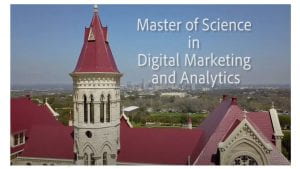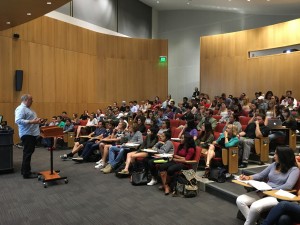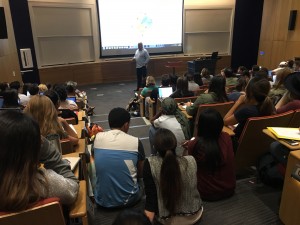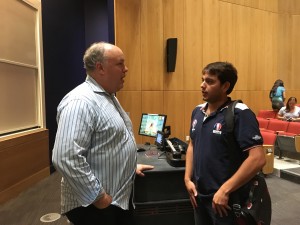Seven “Must-Have” Digital Marketing Certifications
Where to start with Digital Marketing Certification
In our last blog post we talked about the different types of certifications, being tools, platform and skills-based. This post focusses on the seven top certifications that students in our Master of Science in Digital Marketing and Analytics program report as helping them in the workplace. In keeping with the spirit of the Artemis moon launch program, set to debut later this Spring, we offer seven certifications that can launch a digital marketing career. These certifications are all included in the Digital Marketing and Analytics Master’s Degree here at St. Edward’s University. In class, they are woven into a curriculum with a strong strategic marketing emphasis. Tableau and Marketo training is also included in the program. Since the certifications are paid, we let the students decide for themselves if they wish to pursue them.

Digital Marketing Certification Can Launch Your Career
1) Google Ads: This is a classic certification on the Google Ads platform. In class, the certification can be used in conjunction with a client project. We use it to prepare students for a search simulation. Students can take one of several certification or all of them. The basic search certification is a great place to start. Please note this certification and Google Analytics have moved to the Skillshop platform.
2) Google Analytics: The Google Analytics Individual Qualification (IQ) is another must-have certification opinion. Although there are other analytics platforms, GA gives students a good feeling for how web analytics applications work. Linking GA to a blog such as blogger provides an opportunity for students to see the effect of their efforts on a daily basis. Please note that as of this writing the IQ exam was not updated for the new GA4 format. GA is going away next Summer so we hope this oversight is corrected soon.
3) SEMRUSH: In keeping with the search theme, SEMRUSH has several SEO qualification exams including SEO fundamentals and keyword research. This certification would be particularly helpful for those seeking jobs and internships in organic search.
4) HubSpot Academy: HubSpot Academy has always been free and has been around for several years. HubSpot is a CRM tool but they offer certification in many areas such as Inbound Sales, Email Marketing, Social Media Marketing and CRM. Inbound Marketing and Inbound are the most popular and a good place to start.
5) Hootsuite: This is one of the most popular social media posting platforms. Platform training is free and social marketing training is free in an associated class approved by Hootsuite for students enrolled in an approved course. We include both of these certifications in our graduate program.
6) IBM Big Data Badge: This badge is useful for those interested in the data analytics side of digital marketing. We use it in our graduate program at St. Edward’s but it is suitable for undergraduates as well.
7) Twitter Flight School This platform is a great place to earn about advertising on the Twitter platform. There is no certification but students can earn various badges, including a Video Badge and one on how to get started on Twitter.
Some additional certification programs
There are also some excellent tools that have free training but don’t offer free certification.
1) Marketo This leading marketing automation tool, now offers free platform training and marketing training for but not free certification. These are free practice videos. The company offers certified associate and expert exams for a fee.
2) Tableau is a popular data visualization tool that has free access and training for university students but the Desktop exam still has a fee. Students have been able to get a one year license and this platform is used in our class in managing the digital organization.
3) Moz Academy courses have a fee except for the one on how to use the Moz Tool. The main certification exam (SEO Essentials Certificate) is not free as of this writing. Moz has a keyword planner tool and other tools that many instructors and students find useful for their classes








